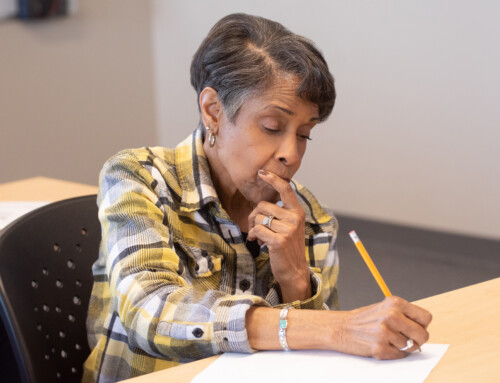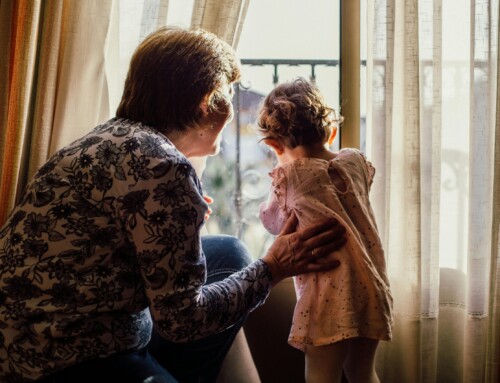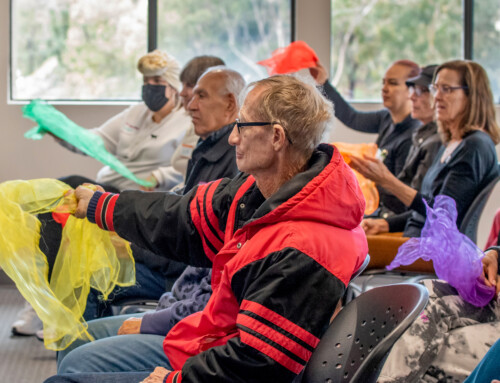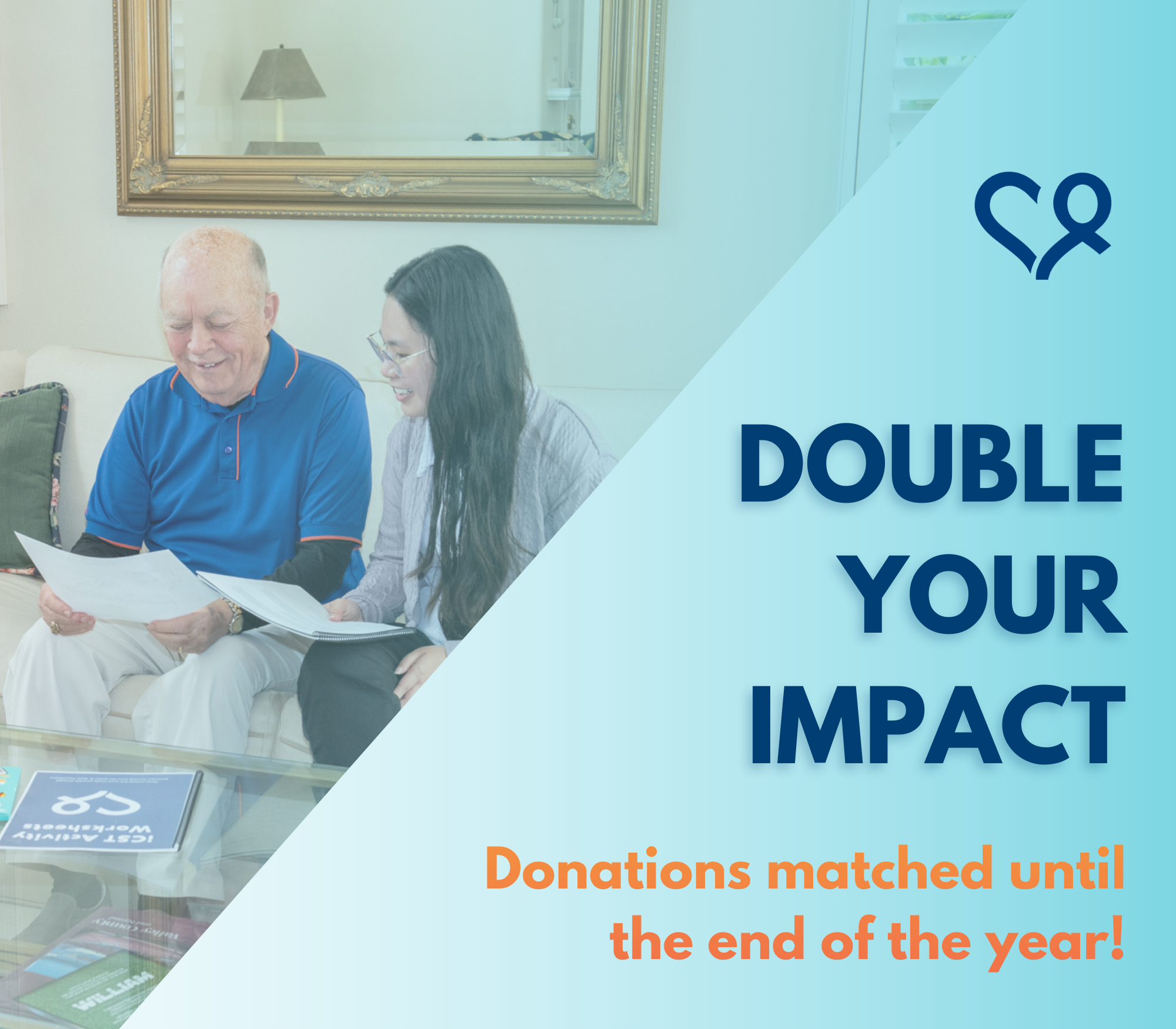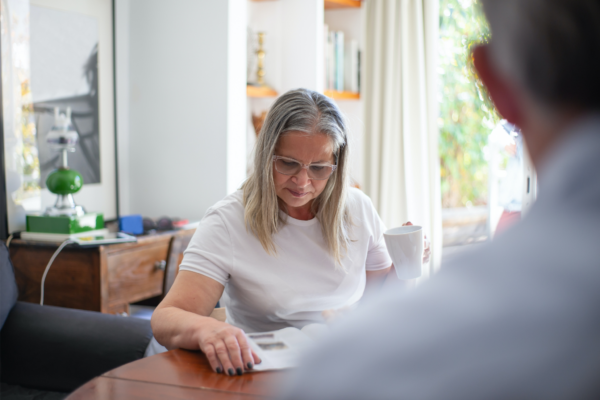
Clinical Care Coach Corner: Written by Alison Hranek, MSW
When it comes to our own health, it’s easy to avoid seeking treatment. Caregivers will often pay more attention to needs of the person they’re caring for, than their own. A caregiver denies the needs of their own mind and body, even at great cost. It may be easy for them to rationalize why, but it will get harder and harder to manage on their own. When caring for people with dementia, anosognosia may become a factor.
A brief definition: “Anosognosia is a neurological condition in which the patient is unaware of their neurological deficit or psychiatric condition. It can affect the patient’s conscious awareness of deficits involving judgment, emotions, memory, executive function, language skills, and motor ability.”
Someone going through memory loss may not be able to recognize that anything is wrong. It’s typical for half of people living with dementia to have anosognosia. There may be confusion driving to familiar locations or learning new things. They may not go to the doctor or they may insist that everything is fine. This reaction is often confused for the individual being in denial.
Denial vs Anosognosia
Let’s talk about denial. Denial is defined as “a refusal to believe or accept something as the truth”. We are all capable of “living in denial” or fooling ourselves about the reality of a certain situation. The key difference between denial and anosognosia is that denial does not necessarily last forever. When we experience denial, our brain is able to understand the truth and at some point in the future we may come to accept the truth. With anosognosia, individuals are not denying the reality of their situation. They are unable to understand that anything is wrong, even when told over and over. They will never have awareness of their memory loss. This is because of the changes happening in their brain; it is not intentional.
People living with dementia experience changes in judgment and behavior. You might see changes in personality, or emotional outbursts. They are unaware of the changes in their memory and it’s not open for discussion. It’s easy to mistake these behaviors as denial. It is not denial.
As a Clinical Care Coach, I talk to many clients with a recent diagnosis. When a family member receives a new dementia diagnosis, it’s hard to accept. For some family members, they noticed symptoms long before a diagnosis. We can’t see changes going on inside the brain with our naked eye, but we can see changes in behaviors. We can see the patterns in these changes, even when the person living them cannot. Family members are often processing this heavy, life-changing diagnosis on their own.
Acceptance
It is not uncommon for family members, friends, or other care partners to experience denial when the person they care for begins to show signs of memory loss (or received a diagnosis). Accepting the changes takes a lot of time and effort. It’s emotional work and can be very isolating.
If I could get him to accept that he has dementia…
If she would stop denying that something is wrong with her memory…
If they would go to the doctor and get tested…
Then our life would be easier…
While we cannot change what is happening in the brain, we can adapt how we respond to those changes. We can adapt how we communicate with people living with dementia.
We are here to help!
Get curious, slow down, and build your support system. Ask questions to see what they are aware of and give a compassionate response. Give pauses between questions so they have time to catch up. It takes a lot more energy for a brain with memory changes to process conversation. Talk to people about what they do in similar situations. Join a support group or ask someone on our Clinical Services team for guidance.
Focus on Connecting Rather Than Correcting
Communication is one of the biggest stressors in dementia care and is often the root of conflict. We can talk about ways to get to doctor’s appointments, or how to introduce a caregiver. We can help you learn to adapt which can improve quality of life and prevent caregiver burnout. Most of all, we can be a listening ear who understands.
For more information, call us at 858.492.4400 to speak with one of our dementia experts who are here to help San Diego County residents and/or those caring for someone living in San Diego County (Spanish speakers available). Also check out our free education classes, social activities, caregiver support groups, & more.
Our “Clinical Care Coach Corner” series is where our team of dementia experts weigh in on unique topics and provide insight that can help people impacted by dementia.
RECOMMENDED: Essential Tips for Living Alone with Memory Loss
Posted on September 19th, 2024
(Sources: Definition of Anosognosia is from the National Library of Medicine)

